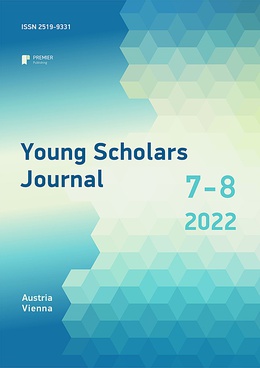Reading on iPad versus paper: A behavioral experiment
Authors
Li Zongying

Share
Annotation
With the growing popularity and accessibility of digital reading devices, questions regarding their effect on reading comprehension arise. Fifty- four college students were randomly assigned to either experimental group or control group. Participants in the experimental group read a two-page text on an iPad and participants in the control group read the same two-page text on a piece of paper. After the 15-minutes of reading, participants completed 10 SAT questions that measured their reading comprehension on abstract information and detailed information from the two-page text. Multiple-regression analysis results showed that the two groups differed only on their comprehension of the abstract information. Besides the group factor, time spent on completing the SAT questions also predicted participants’ scores on abstract questions. Consistent with some previous studies, there were no significant differences in the overall scores between the iPad and paper groups.
Keywords
Authors
Li Zongying

Share
References:
An application of activity theory to the problem of e-books. (2020, September 1). ScienceDirect, 6(9).
https://www.sciencedirect.com/science/article/pii/S2405844020318259 Bando, S. (2017, May 1). Analysis of Physiological Effect of Reading Books by Paper
and Electronic Medium. Wiley Online Library, 100(5), 44-50.
https://onlinelibrary.wiley.com/doi/full/10.1002/ecj.11956\
Cha, S.-S., & Seo, B.-K. (2018). Smartphone use and smartphone addiction in middle
school students in Korea: Prevalence, social networking service, and game use. SAGE Journals. https://journals.sagepub.com/doi/pdf/10.1177/2055102918755046
Chi, M. T. H., de Leeuw, N., Chiu, M.-H., & Lavancher, C. (1994). Eliciting Self-Explanations Improves Understanding.
University of Pittsburgh, 18, 439-477. https://onlinelibrary.wiley.com/doi/pdfdirect/10.1207/s15516709cog1803_3
Clinton, V. (2019, May 1). Reading from paper compared to screens: A systematic review and meta analysis.
Journal of Reasearch in Reading, 42(2), 288-325.
https://onlinelibrary.wiley.com/doi/abs/10.1111/1467-9817.12269
Cohen J. (1988). Statistical Power Analysis for the Behavioral Sciences, 2nd Ed.
Hillsdale, NJ: Laurence Erlbaum Associates
Delgado, P., & Salmerón, L. (2021, February 1). The inattentive on-screen reading: Reading medium affects attention and reading comprehension under time pressure. PubMed Central (PMC). https://www.ncbi.nlm.nih.gov/pmc/articles/PMC7463273/
Dobler, E. (2015, March 1). International Literacy Association Hub. International Literacy Association (ILA), 58(6), 482-491. https://ila.onlinelibrary.wiley.com/doi/abs/10.1002/jaal.391
Does It Matter Whether One Takes a Test on an iPad or a Desktop Computer? (2016, April 4). Taylor & Francis, 16(4), 352-277. https://www.tandfonline.com/doi/abs/10.1080/15305058.2016.1160097
Don’t throw away your printed books: A meta-analysis on the effects of reading media on reading comprehension. (2018, November 1). ScienceDirect, 25, 23-38. https://www.sciencedirect.com/science/article/pii/S1747938X18300101
Dyson, M., & Haselgrove, M. (2001, January 5). The influence of reading speed and line length on the effectiveness of reading from screen. Academic Press, 54, 585-612. http://citeseerx.ist.psu.edu/viewdoc/download?doi=10.1.1.108.4346&rep=rep1&t ype=pdf
Elder, L., & Paul, R. (2004). Critical Thinking. . . and the Art of Close Reading (Part II). Journal of Developmental Education, 27(3), 36-37. https://files.eric.ed.gov/fulltext/EJ718563.pdf
Gąsior, K. E. (2019, December 30). E-texts or p-texts? Evidence from reading comprehension tasks for Polish teenage learners of English | Gąsior | Lublin Studies in Modern Languages and Literature. Lublin Studies in Modern Language and Literature. https://ns2.journals.umcs.pl/lsmll/article/view/9109
Hosseini, E., Khodaei, F., Sarfallah, S., & Dolatabadi, H. (2012). Exploring the Relationship Between Critical Thinking, Reading Comprehension and Reading Strategies of English University Students. World Applied Sciences Journal, 17(10), 1356-1364. http://citeseerx.ist.psu.edu/viewdoc/download?doi=10.1.1.389.6521&rep=rep1&t ype=pdf
Margolin, S., Toland, M., & Driscoll, C. (2013). E-readers, computer screens, or paper: Does reading comprehension change across media platforms? Digital Commons, 24. https://digitalcommons.brockport.edu/cgi/viewcontent.cgi?article=1026&context= Drakepubs
Jabr, F. (2013, November). Why the Brain Prefers Paper. Scientific American 48-53. https://static.trogu.com/documents/articles/palgrave/references/jabr%20-%20why %20the%20brain%20prefers%20paper.pdf
Nishimura, H. (2015, August 2). A Study on Learning Effects of Marking with Highlighter Pen. SpringerLink, 9184, 357-367. https://link.springer.com/chapter/10.1007/978-3-319-21073-5_36?error=cookies_ not_supported&code=0be89671-89ce-47a4-bb25-aa3d3678771
ÖZtop, F., & Nayci, Ö. (2021, February 5). DOES THE DIGITAL GENERATION COMPREHEND BETTER FROM THE SCREEN OR FROM THE PAPER?: A META-ANALYSIS. International Online Journal of Education and Teaching, 8(2), 1206-1224.
https://files.eric.ed.gov/fulltext/EJ1294459.pdf
Print versus digital reading comprehension tests: does the congruency of study and test medium matter? (2021). British Journal of Educational Technology, 52(1), 426-440. https://bera-journals.onlinelibrary.wiley.com/doi/epdf/10.1111/bjet.13014
Using time pressure and note-taking to prevent digital distraction behavior and enhance online search performance: Perspectives from the load theory of attention and cognitive control. (2018, November 1). ScienceDirect, 88, 244-254. https://www.sciencedirect.com/science/article/abs/pii/S0747563218303303


